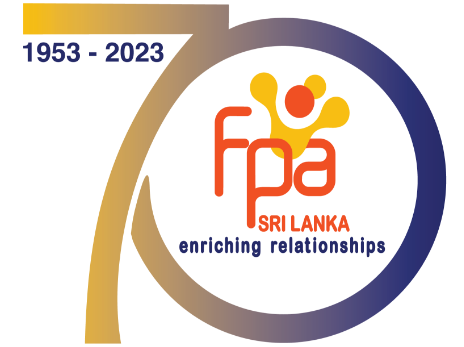Family Planning 2020

Family Planning 2020 (FP2020) is a global partnership that supports the rights of women and girls to decide, freely, and for themselves, whether, when, and how many children they want to have. Family Planning 2020 aims to expand access to family planning information, services, and supplies to an additional 120 million women and girls in 69 of the world's poorest countries by 2020.
Sri Lanka is a FP 2020 focused country and in August 2018, Sri Lanka signed the FP 2020 pledge with a commitment to increase the percentage of eligible families who have their need for family planning satisfied with modern methods, from 74.2% (DHS 2016) to 79% by 2025. In order to do this successfully Sri Lanka will need the involvement of key stakeholders, Government, Donors and Civil Society members. FP 2020 will proactively advocate for increased focus, support and resources for rights-based family planning, seek to inspire and strengthen the broad-based family planning movement, and champion the rights of women and girls to access high quality, affordable, modern contraception including young people and marginalized populations.
A team of Focal Points representing government, civil society, and donor’s work with the FP2020 Secretariat, Core Conveners, and stakeholders to drive progress on the country’s FP2020 goals and FPA Sri Lanka was appointed as a Civil Society Focal Point from September 2018 onwards.
Key commitments of the FP2020 Project include:
Financial:
- Ministry of Health, Nutrition and Indigenous Medicine will commit to make available adequate financial allocations for existing as well as new family planning interventions in order to cater to increasing demands.
- Inclusion of a budget-line on Reproductive Health in the Government Budget in 2019.
- Ministry of Health, Nutrition and Indigenous Medicine will commit to procure the required amounts of contraceptive commodities through the allocation for maternal and child health service commodities.
Policy:
- Family Planning Programme has been integrated with maternal and child health services since the 1960's, and covered in the broader National Maternal and Child Health Policy of Sri Lanka. Ministry of Health, Nutrition and Indigenous Medicine is planning to develop a National Family Planning Strategy in 2018, in order to improve family planning performance, which is stagnant at present, as well as to address newly emerging issues and challenges. This will be achieved through a consultation process.
- A multi-year costed implementation plan for the National Family Planning Programme will be drafted in 2018 through a consultation process.
- Ministry of Health, Nutrition and Indigenous Medicine intends to engage the education sector in disseminating sexual and reproductive health education, including age appropriate family planning awareness, to adolescents, in order to address the issue of teenage pregnancies, which has been stagnant in the recent past.
- The current policy of free family planning services in the government sector will continue for all temporary and permanent methods.
- Wider access to family planning services will be achieved through engagement of the private sector through public private partnership.
Sri Lanka holds a leading position amongst low and middle income countries with regard to its impressive maternal health indicators. These impressive statistics are often attributed to the country’s well-organized and decentralised healthcare system.
Despite observing impressive maternal health indicators, unsafe abortions remain prevalent, unaddressed, and accountable, to a considerable extent, for the maternal deaths that do occur in the country. In spite of its wide reach, the unmet need of family planning in Sri Lanka indicates that there are certain vulnerable populations (youth, working men and women including older women and single women) that remain unreached, without adequate access to information and modern contraceptive services.
The project will focus its efforts in the Northern and North Western Province as these two provinces have a high unmet need for family planning in the country. The main goal is to increase the use of modern family planning methods among these populations.
Activities to be carried out:
• National level Training of Trainer (TOT) trainings on modern contraceptive methods for Civil Society Organisations (CSO) from different parts of the country.
• Capacity building sessions on Sexual and Reproductive Health and Rights will be conducted at the national and district level.
• Youth camps to be held at district level in the Northern and North Western Provinces. The topics addressed during the camps would be Modern Family Planning Methods, Human Body, Gender, Gender Based Violence, Laws and Policies, LGBTIQ and Abortion.
.png)

